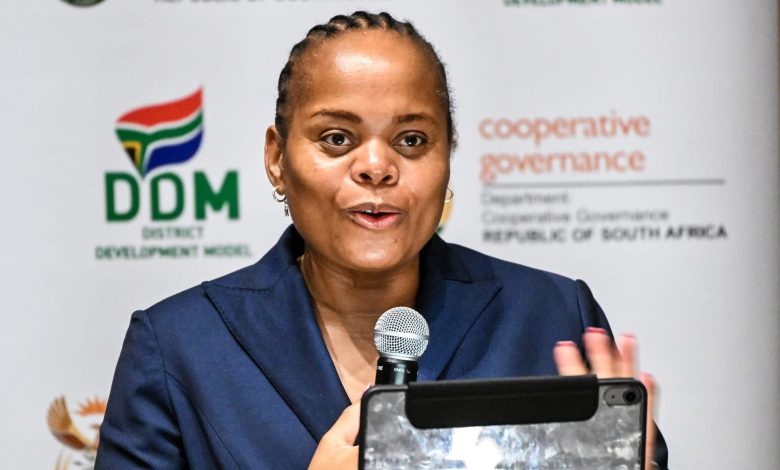Premier Ramathuba celebrates multiculturalism at Mahumani event

Dr. Phophi Ramathuba, the Premier of Limpopo Province, recently addressed the 12th Mahumani Multi-Cultural Celebration, emphasising the vital role of culture in fostering community resilience, unity, and economic development. She highlighted that cultural heritage is not just about identity but also a powerful tool for promoting tourism and creating opportunities for local communities, particularly around areas like the Kruger National Park and the Southini Baleni attraction. The Premier called for collective effort from traditional leaders, government, businesses, and all community members to safeguard and leverage their cultural assets for a prosperous future, with the provincial government ready to offer support.
Detailed list of key information
- Event: The 12th Edition of the Mahumani Multi-Cultural Celebration 2025.
- Location: Nkomo 22B, within the Limpopo Province.
- Key Speaker: Dr. Phophi Ramathuba, the Premier of Limpopo Province.
- Programme Director: Mr. Pat Khalanga Makhubele.
- Organising Body: The Mahumani Traditional Council, led by Hosi Khaohareni Aarone Mahumani Nkomo.
- Notable Dignitaries Present:
- Deputy Minister of COGTA (Cooperative Governance and Traditional Affairs), Prince Z Burns Ncamase.
- Mopani District Executive Mayor, Cllr Pule Shayi.
- Greater Giyani Municipality Mayor, Cllr Thandi Zitha.
- His Royal Highness C Murinye from the Kingdom of Great Zimbabwe.
- Various Councilors, Traditional Leaders, Faith-Based Leaders, Distinguished Guests, and Community Members.
- Government Departments Providing Support:
- Department of Cooperative Governance, Human Settlements, and Traditional Affairs (COGTA). For more information, you can visit their website.
- Department of Sport, Arts, and Culture. You can learn more about their initiatives on their website.
- Key Tourist Attractions Mentioned:
- Kruger National Park, a renowned wildlife reserve.
- The Southini Baleni attraction.
- Involved Parties for Collaboration: Traditional leaders, businesses, artists, government, and community members.
A celebration of culture, unity, and economic growth
Premier Dr. Phophi Ramathuba expressed her great pleasure and honour to address everyone at the 12th Mahumani Multi-Cultural Celebration. She described the event as a significant gathering where heritage, unity, and diversity come together, reminding everyone of the inherent beauty in who they are as people. The Premier highlighted that this celebration is a moment to deeply appreciate the importance of our cultures and traditions.
Dr. Ramathuba emphasised that culture is the heartbeat of any nation, a reflection of its people’s breath, the songs of their ancestors, and the wisdom passed down through generations. She stated that culture is not just about the past; it is the pride that guides future generations and acts as a mirror showing us who we are. Without a strong cultural foundation, she warned, communities are like trees without roots, vulnerable to external influences. However, with a solid cultural base, we can stand tall and united as a resilient community.
For the past twelve years, this celebration has demonstrated the strength, vision, and pride of the Mahumani community. It offers a crucial platform to not only display cultural heritage but also encourages growth and solidarity among the people. The Premier stressed that culture plays a vital role in shaping society, teaching respect, unity, and “ubuntu” – a term embodying humanity. It connects our past to our future, serving as a powerful symbol of identity and a catalyst for social cohesion and economic advancement.
The Premier affirmed that this 12th celebration proves that cultural festivities can significantly boost tourism and the local economy. She noted that the Mahumani Traditional Council is exceptionally well-placed to promote tourism in Limpopo. Given its close proximity to the world-famous Kruger National Park and the existence of attractions like the Southini Baleni, there is a golden opportunity to attract visitors eager to experience Limpopo’s rich cultural tapestry. The artistic exhibitions that showcase local creativity are just the beginning of what this vibrant community can offer.
To fully realise this potential, Dr. Ramathuba called for an elevation of cultural assets. She explained that tourism is deeply connected to unique experiences, and by effectively presenting their cultural heritage, Mahumani can become a top destination for visitors. Achieving this vision, however, requires a collective effort. Cultural activities must be seen as sustainable economic ventures that uplift households, empower young people, and expand opportunities for everyone.
As the celebration reaches this important milestone, the Premier encouraged everyone to dream big. She urged the community to explore how their land – sacred and rich in potential – can become a source of economic opportunities, suggesting ideas like cultural villages, eco-tourism lodges, agricultural projects, craft markets, and heritage trails. Her vision is to transform cultural pride into tangible development for the council and the entire community. This transformation, she stressed, cannot rely solely on leaders but demands the active involvement of every member of society: elders sharing wisdom, youth bringing energy, women nurturing families, and men providing strength. Together, everyone must work to preserve their culture and harness opportunities that benefit all.
Community benefits and participation
The provincial government stands ready to support these efforts. Through departments such as Cooperative Governance, Human Settlements, and Traditional Affairs, and the Department of Sport, Arts, and Culture, platforms are being created for artists, musicians, crafters, and storytellers. These cultural ambassadors are crucial in ensuring that Limpopo’s unique voice is heard not only within South Africa but also across Africa and globally. The Premier’s vision for this celebration is expansive, aiming for it to grow beyond Mahumani, Giyani, and Limpopo, ultimately becoming a nationally recognised festival that draws visitors from all provinces and countries, serving as a beacon of cultural pride and economic potential.
The community stands to benefit greatly from these initiatives through job creation, increased income from tourism, preservation of their unique heritage, and the empowerment of youth and women. By participating, community members can ensure their traditions are passed down, contribute to local economic growth, and showcase their talents to a wider audience. Everyone is encouraged to get involved by supporting local cultural initiatives, participating in skill-sharing, and contributing to the development of tourism projects. For more insights into the Premier’s office news, visit Premier’s Office News.
In conclusion, Dr. Ramathuba urged everyone – traditional leaders, businesses, artists, government, and community members – to unite. She called upon them to protect and promote their culture as the foundation for their future. She expressed hope that the 12th edition of the Mahumani Multi-Cultural Celebration would symbolise pride, boost tourism, create jobs, and foster unity. Echoing an African proverb, “A people without the knowledge of their past, their origin, and their culture is like a tree without roots,” she concluded by hoping the celebration would root the community deeply in its traditions while enabling it to reach for new opportunities. You can find more information about the Limpopo government initiatives here: Limpopo Provincial Government.
Questions and answers for public participation
-
What is the main purpose of the Mahumani Multi-Cultural Celebration?
The main purpose is to celebrate and preserve the rich cultural heritage and traditions of the Mahumani community, promote unity and diversity, and use culture as a catalyst for economic development and tourism. -
How can celebrating culture help the local economy?
By showcasing cultural heritage, the celebration attracts tourists, which can lead to the development of cultural villages, eco-tourism lodges, craft markets, and heritage trails. These initiatives create jobs and generate income for local households. -
What kind of tourism opportunities are being encouraged in Mahumani?
The Premier encourages the development of cultural villages, eco-tourism lodges, agricultural projects, craft markets, and heritage trails, especially leveraging the area’s proximity to the Kruger National Park and attractions like Southini Baleni. -
How can young people in the community get involved in these cultural and economic initiatives?
Young people are encouraged to be a driving force, bringing energy and new ideas. They can participate in cultural performances, develop tourism ventures, contribute to craft markets, or get involved in preserving and promoting their heritage through various platforms supported by the Department of Sport, Arts, and Culture. -
Is there government support available for cultural and tourism projects?
Yes, the provincial government, through departments like Cooperative Governance, Human Settlements, and Traditional Affairs (COGTA) and the Department of Sport, Arts, and Culture, is committed to creating platforms and support for artists, musicians, crafters, and storytellers to grow their cultural and economic ventures. -
What is the long-term vision for the Mahumani Multi-Cultural Celebration?
The vision is for the celebration to expand beyond Mahumani, Giyani, and Limpopo, eventually becoming a nationally recognised festival that attracts visitors from all provinces and even other countries, serving as a beacon of cultural pride and economic potential. -
How can local artists, musicians, or crafters participate in these initiatives?
The government is setting up platforms specifically for artists, musicians, crafters, and storytellers. Community members with these skills should engage with the Department of Sport, Arts, and Culture or their local traditional council for information on how to showcase their talents and contribute. -
What does the Premier mean by “culture as a catalyst for social cohesion and economic development”?
It means that culture, by bringing people together to celebrate shared heritage, strengthens community bonds (social cohesion) and, when strategically promoted, can generate income and job opportunities (economic development) through tourism and related industries. -
How can community members contribute to preserving their culture?
Every member has a role: elders can share their wisdom and stories, youth can embrace and innovate traditions, women can continue their roles as custodians of family values, and men can uphold their roles as pillars of strength. Active participation in local cultural events and sharing knowledge helps preserve heritage. -
Where can I find more general information about Limpopo Province’s government initiatives?
You can visit the official website of the Limpopo Provincial Government for comprehensive information on various departmental activities and news. -
Are visitors from outside Limpopo welcome at the celebration?
Absolutely. The long-term vision is for the celebration to become a nationally recognised festival, attracting visitors from all provinces and even from other countries, making it a truly inclusive event. -
What role do traditional leaders play in these initiatives?
Traditional leaders, like Hosi Khaohareni Aarone Mahumani Nkomo, are crucial in leading and guiding their communities, preserving cultural practices, and working with government and other stakeholders to implement economic development plans rooted in traditional values. -
How can I learn more about the Premier’s ongoing work and news from her office?
You can stay updated by visiting the Premier’s Office News section on the cityofthohoyandou.co.za website.





